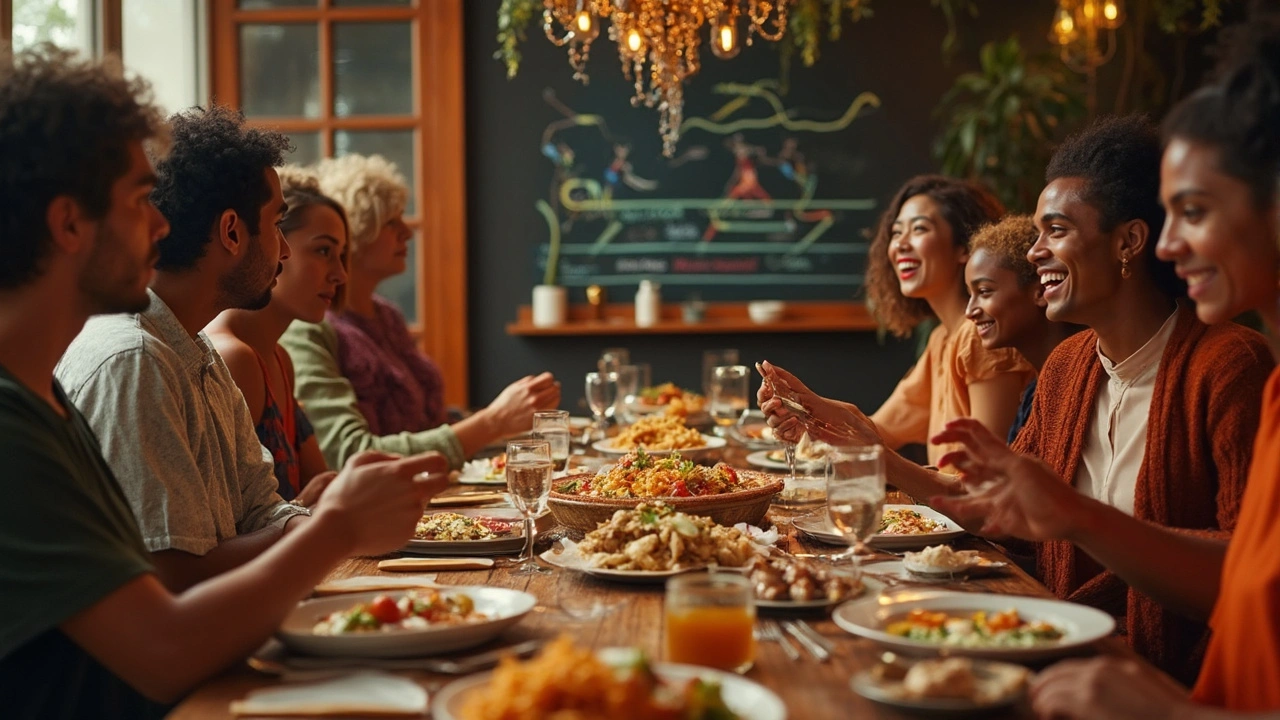Ever noticed how food can feel like a family history lesson? Cultural diets are the eating patterns, recipes, and food habits passed down through generations. They shape taste, comfort, and health. Some traditional diets—like the Mediterranean or certain East Asian diets—are linked to lower rates of heart disease. Others include foods that can clash with modern medicines. Knowing the difference helps you keep what’s good and fix what’s risky.
Different cultures lean on different staples: whole grains and olive oil in the Mediterranean, fermented soy in parts of Asia, maize and beans across Latin America, and spiced legumes in South Asia. These patterns often deliver fiber, healthy fats, and plant-based nutrients. But cultural diets change when processed foods enter the picture. Less home-cooked food usually means more sugar, salt, and unhealthy fats—things that can raise blood pressure, cholesterol, and blood sugar.
So what’s the practical takeaway? Keep the core benefits: vegetables, legumes, whole grains, and fermented foods for gut health. Cut back on packaged snacks and sugary drinks. Small swaps—like using brown rice instead of white, or grilling instead of deep-frying—make a big difference without losing the flavor you love.
Traditional meals can interact with medicines. A few real examples to keep in mind: grapefruit and grapefruit juice can raise blood levels of certain drugs (like some statins and blood pressure meds). Leafy greens high in vitamin K—think kale or collard greens—can reduce the effect of warfarin, an anticoagulant. Fermented or aged foods with high tyramine (certain cheeses, cured meats) can cause problems with MAOI antidepressants. And herbal traditions, like St. John's wort or certain ginsengs, can change how some prescriptions work.
If you fast for religious reasons, plan your medication timing ahead of time. Missing doses or changing when you take drugs can cause real harm. A quick chat with your doctor or pharmacist can usually sort out safe timing or small adjustments.
Want practical next steps? Start by listing the traditional foods you eat often. Ask your provider whether any of them might affect your meds. Swap risky items for similar, safer options—use fresh citrus instead of grapefruit juice, or choose non-fermented soy instead of heavily fermented soy if you’re on sensitive meds.
Keeping cultural food habits doesn’t mean giving up health. With a few smart swaps and a quick check-in with your clinician, you can honor tradition, enjoy familiar flavors, and stay safe with your medicines.

Orlistat is a popular weight-loss medication that works by preventing the absorption of fats from your diet. Adapting traditional cultural diets while using Orlistat might seem challenging, but with the right tips and tricks, you can make it work. This article explores how different cultural diets can be adjusted while taking Orlistat. Discover practical advice for maintaining a balanced diet and enjoying your cultural foods without compromising on weight loss goals.